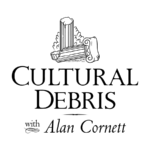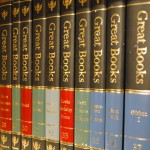I’ll be taking a break from compiling these weekly roundups during the Advent season. See you all after Christmas!
“The Trappists’ Coffins.” In a moving essay, Leah Libresco Sargeant writes about the loving care with which a group of Trappist monks craft coffins, many of which are intended for tiny bodies.
“Befriending Books: On Reading and Thinking with Alan Jacobs and Zena Hitz.” Brad East reviews new books that pair well together: “In these books two master pedagogues spread a feast before the reader. The meal is permanent inasmuch as the reader cannot get to the end of it, for what they propose involves a lifetime.”
“A Year of Reading: 2020.” John Wilson’s year-end reading lists always abound with unexpected treasures. This year’s is no exception.
“Innovation Through Constraint.” Matthew Stewart reviews Scott Newstok’s How to Think Like Shakespeare and commends its rich vision of education.
“Why I am Bearish on Substack.” T. Greer outlines several dangers with the increasingly-popular Substack model of journalism. One of these is that beginning writers will have fewer opportunities for apprenticeship: “Substack favors those who already have large megaphones. A Substack-based intellectual sphere will be intensely, if unintentionally, hostile towards new blood.”
“How Our History Can Unify Us: A Conversation with Danielle Allen and Wilfred McClay.” Robert George moderates a thoughtful conversation on the proper role and method of history. As Danielle Allen puts it, good history seeks “honesty without cynicism” and “appreciation without adulation.”
“How Liberal Arts Colleges Could Save Civilization.” Benjamin Myers articulates a vision of liberal arts colleges as institutions of vital memory:
As Michael Oakeshott makes clear in The Voice of Liberal Learning, the essence of the liberal arts is not in being “well-rounded” by taking a smattering of unconnected and arbitrary classes, nor in merely fostering “critical thinking”—which often means simply learning to ape the opinions and beliefs of the professor—but rather in the reception of an inheritance. This inheritance enables us to be more than well-rounded; it prepares us to be more fully formed.
“The Age of the Middle Class is Over.” Ed West considers the argument that Joel Kotkin lays out in The Coming of Neo-Feudalism and concludes that “the age of the global aristocrat has arrived.”
“Markets and the Strangulation of the American Family.” Gracy Olmstead reviews two recent books and tries to figure out why it’s so hard to care for a family today. A real solution won’t come easily:
Fixing what’s broken, both authors argue, will require far more than a few tweaks to the tax code. It will demand a complete reevaluation of our economic system and governmental safety net. It will require us to consider who our economy is actually meant to serve—and whether conservatives, in particular, are willing to back their pro-life, pro-family rhetoric with actual economic policy. We have to start asking ourselves what we believe the telos, or “chief end,” of our economy is meant to be.
“What US Democracy can Learn from Ancient Greek Philosophy.” Teresa Bejan turns to classical Greek philosophers for guidance on how to navigate a polarized polis: “Plato and Aristotle stressed the need for friendship among citizens and extolled the virtues of moderation and like-mindedness.”
“My Friend the Hillbilly.” Jamil Jivani writes about his friendship with J.D. Vance and commends the recent film adaptation of Hillybilly Elegy: “During a time when it feels like partisanship has overtaken so many parts of our lives, is it actually a bad thing for a movie to be more personal than political?”
“Roger Scruton: Philosopher of the ‘Small World.’” If the pandemic leads to lasting reductions in commuting and travel, Johan Wennström suggests Scruton may be a good guide for cosmopolitans seeking to put down roots.
“C.S. Lewis, Langston Hughes, & the Haunting of America.” Bethany Getz suggests, following Lewis, that all nations are haunted by their particular ideals: “Today, as in 1945, there is a need to balance confidence in the good ideals of one’s nation with humble awareness of the failures of that nation that, in any case, cannot claim any special status as superior to other countries.”
“Confronting Modernity Means Overcoming Humanism.” Charlie Smith critiques human hubris and considers a more humble, grounded set of approaches: “In a world of immense uncertainty, a number of disparate thinkers are embracing uncertainty as the basis for a new way of seeing the world. Thinkers like John Gray, Nassim Taleb, and Alasdair MacIntyre offer a fundamentally new take on how we might navigate a world of growing complexity that is increasingly beyond our comprehension.” I don’t think uncertainty is a new feature of life, and I’m not sure that all these thinkers would agree they are offering a “new take” on how to respond to uncertainty, but this is a provocative essay nonetheless.






